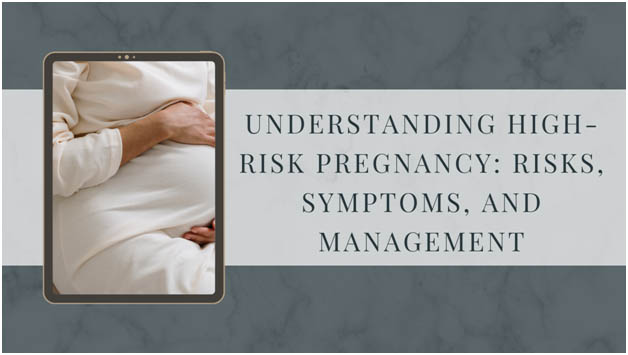
Introduction
A high-risk pregnancy can be a challenging and concerning experience for expecting mothers. It involves a higher likelihood of complications that may affect the health of the mother, the developing baby, or both. In this article, we will explore the various aspects of high-risk pregnancies, including the causes, identification of risk factors, symptoms, management, and available support.
What is a High-Risk Pregnancy?
A high-risk pregnancy refers to a pregnancy where there is an increased chance of complications for the mother or the baby. These complications may arise due to pre-existing health conditions, maternal age, lifestyle factors, or other underlying issues. It’s essential to identify high-risk pregnancies early on to provide appropriate care and reduce potential risks.
Common Causes of High-Risk Pregnancies
Several factors can contribute to the classification of a pregnancy as high-risk. Some common causes include advanced maternal age (typically above 35), pre-existing medical conditions such as diabetes or hypertension, multiple pregnancies (e.g., twins or triplets), previous history of pregnancy complications, and genetic disorders.
Identifying High-Risk Factors
Healthcare providers play a crucial role in identifying high-risk factors during prenatal care. They assess various aspects, such as the mother’s medical history, family history, current health status, and any existing conditions that could increase the risk for complications. Identifying these factors enables healthcare professionals to tailor the care and management plan accordingly.
Symptoms and Warning Signs
Complications Associated with High-Risk Pregnancies
High-risk pregnancies are associated with various complications that can affect both the mother and the baby. These complications may include preeclampsia, gestational diabetes, placenta previa, preterm labor, fetal growth restrictions, and birth defects. Understanding these potential complications helps healthcare providers and expecting mothers to take appropriate preventive measures.
Prenatal Care for High-Risk Pregnancies
Prenatal care is crucial for managing high-risk pregnancies effectively. Regular check-ups, monitoring of blood pressure, glucose levels, and fetal development are essential components of prenatal care. Additional tests and screenings may be recommended to assess the health of both the mother and the baby and to detect any potential issues early on.
Lifestyle Recommendations for High-Risk Pregnancies
Maintaining a healthy lifestyle is essential for managing high-risk pregnancies. This includes following a balanced diet, staying physically active within the recommended limits, avoiding harmful substances such as tobacco and alcohol, and managing stress levels. Making positive lifestyle choices can help reduce the risk of complications and promote overall well-being.
Medical Interventions and Treatments
In some cases, medical interventions and treatments may be necessary to manage high-risk pregnancies effectively. Depending on the specific circumstances, healthcare providers may prescribe medications, recommend specialized monitoring, or suggest interventions such as bed rest or surgical procedures. These interventions aim to minimize risks and ensure the best possible outcome for both the mother and the baby.
Emotional Support and Coping Strategies
Dealing with a high-risk pregnancy can be emotionally challenging for expecting mothers and their families. It is essential to have a strong support system in place, including healthcare professionals, family, and friends. Seeking emotional support, joining support groups, and practicing self-care techniques can help alleviate stress and anxiety during this critical time.
Managing a High-Risk Pregnancy
Managing a high-risk pregnancy requires close collaboration between the expecting mother and her healthcare team. Regular communication, adherence to recommended prenatal care, and vigilant monitoring of symptoms and warning signs are crucial. It is important to follow the guidance of healthcare professionals, ask questions, and actively participate in decision-making regarding treatment and management options.
Delivery Options and Considerations
When it comes to delivering a baby in a high-risk pregnancy, healthcare providers will carefully evaluate the situation to determine the safest method for both the mother and the baby. Depending on the specific circumstances, a vaginal delivery or a cesarean section may be recommended. Factors such as the mother’s health, the baby’s well-being, and any potential risks will be taken into account when making this decision.
Neonatal Care and Postpartum Recovery
After delivery, babies born from high-risk pregnancies may require specialized neonatal care. Neonatal intensive care units (NICUs) provide the necessary medical attention and support for newborns who may have health complications. Additionally, the mother’s postpartum recovery will be closely monitored to ensure a smooth transition to motherhood and to address any postpartum complications.
Conclusion
Understanding high-risk pregnancies is crucial for expecting mothers and their healthcare providers. By recognizing the risks, identifying warning signs, and implementing appropriate management strategies, the chances of a successful outcome can be significantly improved. It is important for expecting mothers to seek early and regular prenatal care, follow lifestyle recommendations, and actively engage in their own healthcare decisions. With proper support and care, many women with high-risk pregnancies go on to have healthy babies.
FAQ`s
High-risk pregnancies cannot always be prevented, but certain lifestyle choices and proactive medical management can help minimize potential risks.
Common risk factors include advanced maternal age, pre-existing medical conditions, multiple pregnancies, and previous history of complications.
While advanced maternal age is a risk factor, not all pregnancies after 35 are automatically classified as high-risk. Healthcare providers evaluate various factors to determine the level of risk.
The frequency of prenatal check-ups may vary depending on the specific circumstances. It is generally recommended to have more frequent visits to monitor the progress and address any concerns promptly.
Yes, with proper medical care and management, many women with high-risk pregnancies give birth to healthy babies. Close monitoring and timely interventions significantly improve the chances of a positive outcome.
